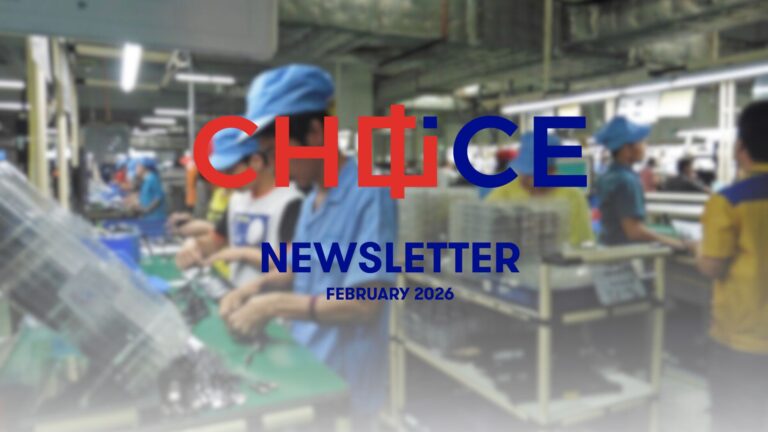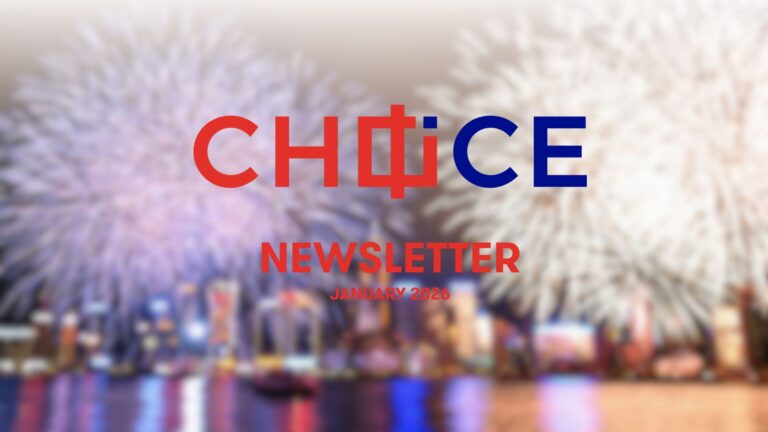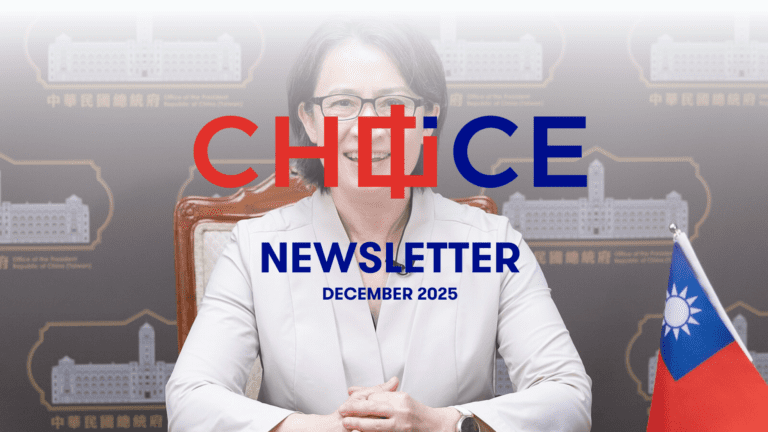CHOICE Newsletter: Influencers, and the influenced
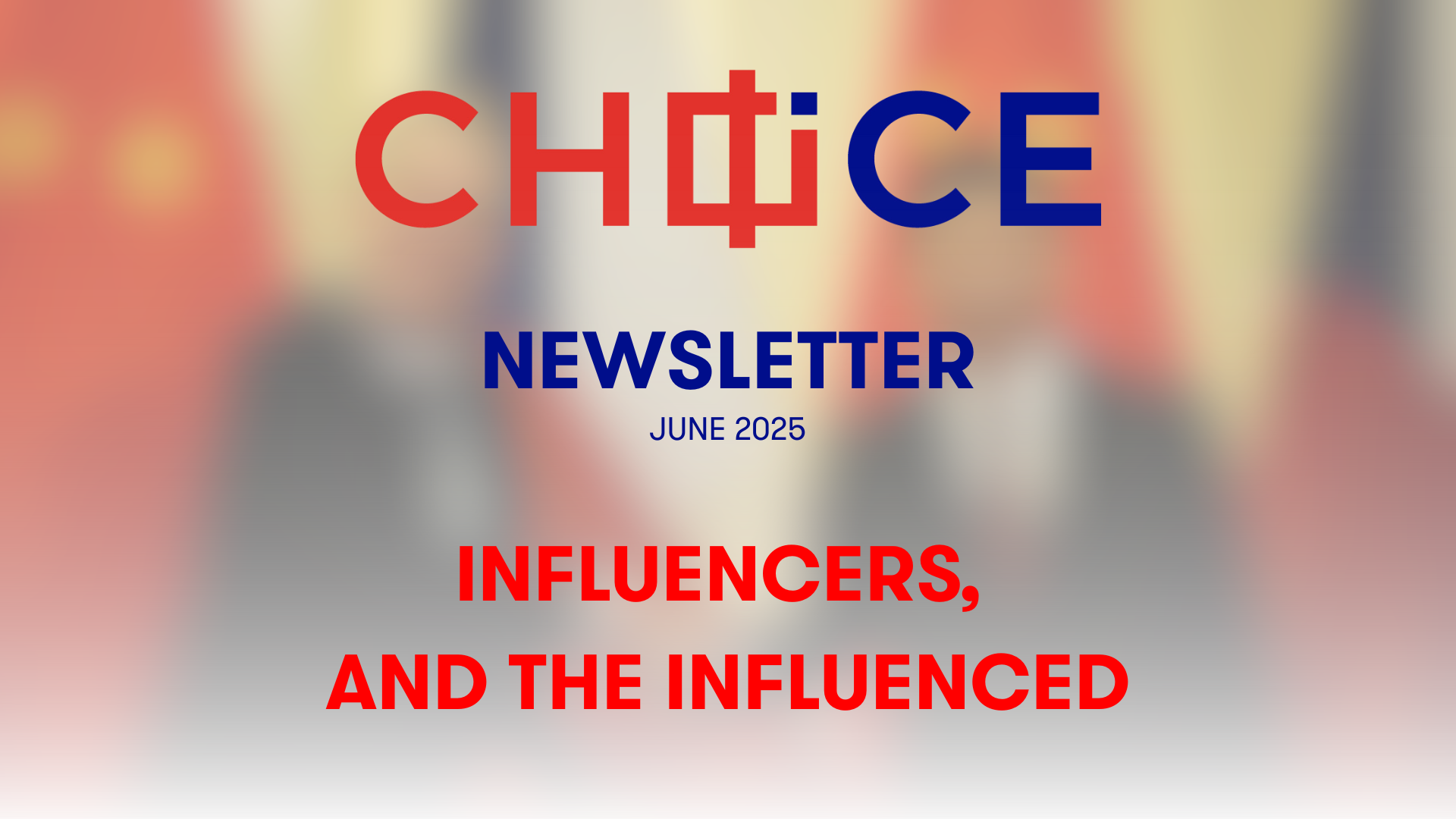
Dear reader,
Welcome to our June newsletter! While influence operations are often subtle, their mechanics are becoming increasingly visible – especially when they involve familiar faces on social media. In our newest CHOICE Take, we examine a multi-year campaign that used Czech TikTokers to promote China-friendly content, culminating in a satirical exposé that reignited the national conversation around foreign influence and transparency. In this issue, we also bring you our regular Taiwan Focus, which unpacks President Lai’s recently presented 17-point vision and its implications for Taiwan’s domestic reform and international positioning.
CHOICE, in collaboration with the Swedish National China Centre (NKK), also recently co-hosted a closed-door CEE-Nordic Dialogue on the evolving dynamics of China-Russia cooperation. Held under the Chatham House Rule, the event brought together experts and policymakers from across Central, Eastern, and Northern Europe and follows in the tradition of our earlier CHOICE-Japan, CHOICE-India, and first and second Transatlantic Dialogues. A full summary of the discussion will be published soon on our website.
CHOICE Take
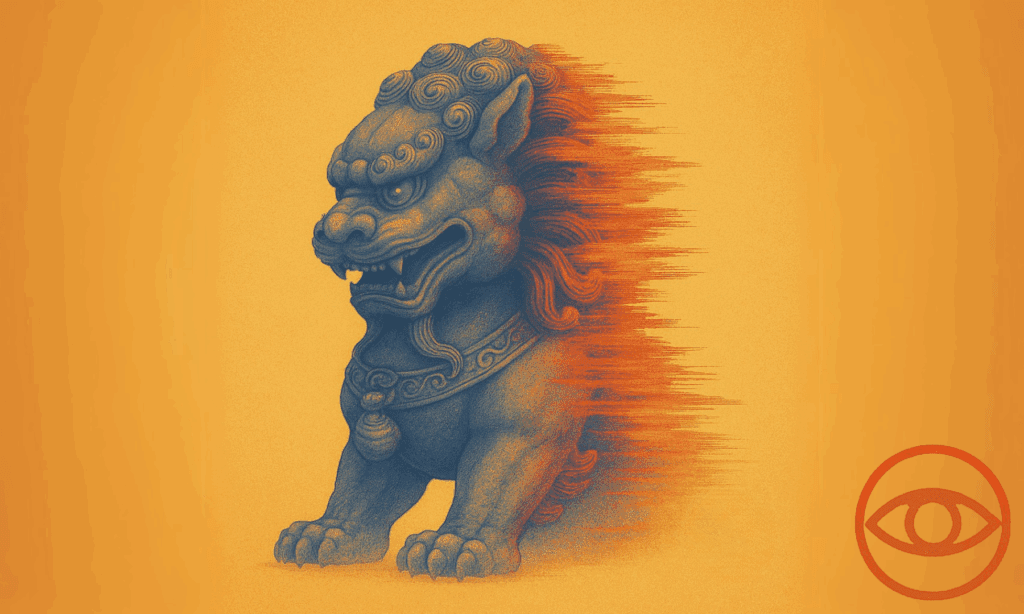
Scripted Smiles: How Chinese State Media Courted Czech Influencers
China’s influence efforts in Europe are often thought of in terms of diplomacy or disinformation campaigns – but in the Czech Republic, one of the most revealing recent cases unfolded on TikTok. Over the past three years, a coordinated effort to engage Czech social media influencers has highlighted how Chinese state-linked actors use entertainment, financial incentives, and subtle messaging to shape perceptions – particularly among younger audiences who may be less exposed to traditional media covering foreign affairs.
The campaign began in 2022, when a Chinese marketing company approached Czech TikTokers with an unusual request: record a short dance video featuring an animated lion avatar. The concept was repeated in Greece and Poland with different culturally resonant animals – an owl and a bull – and seemed playful and apolitical. However, this effort was later traced back to China Radio International (CRI) as part of a wider strategy to build influence through non-political, visually engaging content.
The campaign evolved in 2023, this time inviting a larger group of influencers to record “reaction videos” to posts from two TikTok accounts belonging to “Pepa” Zhang and “Lada” Wang. These characters, portrayed as Czech-speaking fans of Chinese culture, were in fact employees of CRI. While the videos featured content about crafts, tourism, and ethnic minority traditions, their core purpose was to build visibility and credibility for the accounts themselves – and, by extension, the messaging behind them. Influencers were offered between €1,000 and €3,000 per video – a high rate for the local market – and many of the videos received unusually high viewership (tens or even hundreds of thousands of views), suggesting they may have been promoted through paid boosting by the Chinese side.
In the summer of 2024, the initiative escalated. One Czech influencer, Jan Michálek, who has nearly one million followers on TikTok, was invited on a fully funded trip to Xinjiang, where he was filmed daily and given scripted messages to deliver. Though he later claimed he had been misled, Michálek discussed the experience in a Czech podcast, inadvertently revealing how the trip was orchestrated and how carefully controlled the messaging was. The case received significant attention, but it did not deter further interest from influencers in cooperating with similar offers.
In January 2025, Czech YouTuber Martin Mikyska (known as Mikýř) launched a prank to test the limits of influencer cooperation. He created a fictional company, Chinaseeing, and sent a travel offer to 40 Czech influencers, modeled on Michálek’s experience. Seven agreed to meet with the supposed client. Hidden cameras recorded them participating in screen tests, where they were asked to cheer for the victory of the Chinese Communist Party, admire a portrait of Mao Zedong, and react positively to a video of mating pandas. Three influencers signed mock contracts on the spot – contracts that included a clause pledging not to criticize China or the CCP.
The video Mikyska later released sparked widespread debate in Czech society, reigniting questions about the transparency of influencer marketing and the role of foreign state-linked narratives in shaping public discourse. Particularly troubling is that the messaging reaches young people through familiar, often trusted national figures – influencers with very high followings who are not perceived as political actors. The lack of regulation in this space, combined with limited public awareness of such practices, makes it difficult to assess how far these campaigns reach – or how much impact they have.
CHOICE and the MapInfluenCE team have followed the story closely from the beginning. We contributed to the original coverage of the CRI-linked activities, provided background for media and stakeholders, and recently collaborated with Mikýř on an educational video that breaks down the issue and explains its broader context.
Rather than a one-off incident, the Czech case reflects a broader shift in how state-driven narratives are communicated – not through official statements, but through seemingly organic online content. While the tone may be lighthearted and the format familiar, the strategic intent behind such efforts deserves greater scrutiny. In the absence of clear guidelines or platform policies, and with few safeguards in place, influencers continue to represent a growing vector for foreign messaging – one that increasingly calls for attention from policymakers, regulators, and the public alike.
By Ivana Karásková, CHOICE Founder and Lead (based in Prague)
Taiwan in Focus
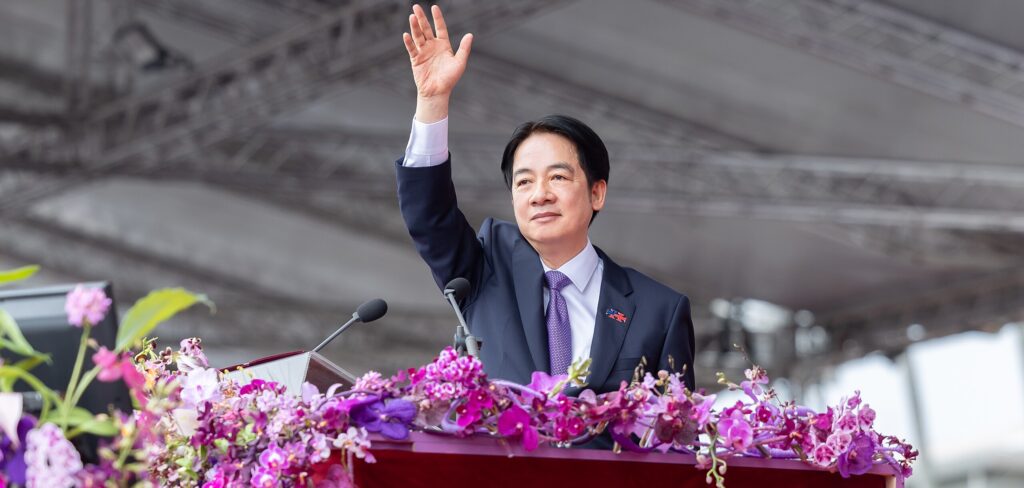
Is President Lai Escalating Tensions with Beijing or Simply Protecting His Country?
To mark his first year in office, Taiwan’s Lai Ching-te announced 17 measures outlining his vision on how to strengthen the island’s defenses against mounting military and other threats from Beijing. Several of these measures focus on fighting infiltration, leading Lai to conclude that China can – and should be – described as a “foreign hostile force.”
This warning is not without basis. In the past few months, Taiwan has faced an alarming number of highly sensitive espionage and infiltration cases, allegedly backed by China. These incidents have targeted military institutions, political parties, and government agencies, exposing the vulnerabilities of Taiwanese society to hybrid warfare tactics.
As expected, China denounced Lai’s statements as an escalation. Yet within Taiwan, public opinion seems to be largely supportive of Lai, especially regarding his clear commitment to preserving the country’s democracy. Lai’s concerns, however, are not focused solely on Beijing, but increasingly also on Washington. Historically, the United States has been Taiwan’s most credible security guarantor, but Trump’s highly disruptive and unpredictable policy toward China has unsettled the delicate balance that had long maintained the status quo across the Taiwan Strait.
Lai thus faces a dilemma: he must acknowledge (and prevent) Chinese infiltration, while avoiding to appear – perhaps even more in Washington’s eyes than Beijing’s – as a “provocateur.” This is especially relevant now, as the US and China seem to be de-escalating their trade war.
Just two weeks ago, Trump used the word “reunification” when talking about relations with China. In Taiwan, this word is widely understood to mean forced annexation by the mainland – a scenario rejected by an overwhelming majority of Taiwanese across the political spectrum.
By Filip Noubel, CHOICE Analyst (based in Taipei)
WiCH Highlights
🇵🇱 Alicja Bachulska, a WiCH Co-Chair for Poland, has recently published her policy brief on how Poland can help Europe think big on China, and how to approach China as a unified bloc. Read it here!
🇪🇸 Alicia García-Herrero, a WiCH Co-Chair for Spain, wrote an article for The Wire China on how the EU should approach the economic turmoil, and whether it’s a good idea to flee into China’s arms. Read more here!
🇱🇻 Una Aleksandra Bērziņa-Čerenkova, a WiCH Co-Chair for Latvia, has spoken as a panelist on a webinar on the next steps for the Baltic states after the “end of the liberal world order”. Watch it here!
CHOICE News
 We have released a new paper! In this latest publication, Dominika Remžová and Ivana Karásková focus on research security in the Czech Republic and in Europe and whether the declarations really hold up in practice. (read it here)
We have released a new paper! In this latest publication, Dominika Remžová and Ivana Karásková focus on research security in the Czech Republic and in Europe and whether the declarations really hold up in practice. (read it here)
 Our Founder and Lead, Ivana Karásková, has commented for Politico on the latest revelation by the The National Cyber and Information Security Agency (NÚKIB) and the Czech security service BIS, who accused Beijing of hacking the MFA’s emails. (read it here)
Our Founder and Lead, Ivana Karásková, has commented for Politico on the latest revelation by the The National Cyber and Information Security Agency (NÚKIB) and the Czech security service BIS, who accused Beijing of hacking the MFA’s emails. (read it here)  Our Analyst Filip Noubel represented CHOICE at the Lviv Media Forum 2025, this year with the theme “Speak the Unspoken: Choices, Decisions, Responsibility.” (check it out).
Our Analyst Filip Noubel represented CHOICE at the Lviv Media Forum 2025, this year with the theme “Speak the Unspoken: Choices, Decisions, Responsibility.” (check it out).  Ivana Karásková also spoke at the event “Chinese Influence in Europe: A View from Prague” in Taipei, co-organized by the Association for International Affairs, Supply Chains Resilience Center at the Charles University, and the Czech Hub in Taiwan. (check it out here)
Ivana Karásková also spoke at the event “Chinese Influence in Europe: A View from Prague” in Taipei, co-organized by the Association for International Affairs, Supply Chains Resilience Center at the Charles University, and the Czech Hub in Taiwan. (check it out here)
 We’re on Bluesky! Stay updated with our latest articles, insights, and news by following our account – don’t miss out on valuable content and updates. (follow us here)
We’re on Bluesky! Stay updated with our latest articles, insights, and news by following our account – don’t miss out on valuable content and updates. (follow us here)
This is the web version of our newsletter. If you’d like to receive the CHOICE newsletter in advance, straight to your inbox, sign up here:
Written by
CHOICE
CHOICE is a multinational consortium of experts providing informed analysis on the rising influence of the People’s Republic of China within the countries of Central and Eastern Europe (CEE).
